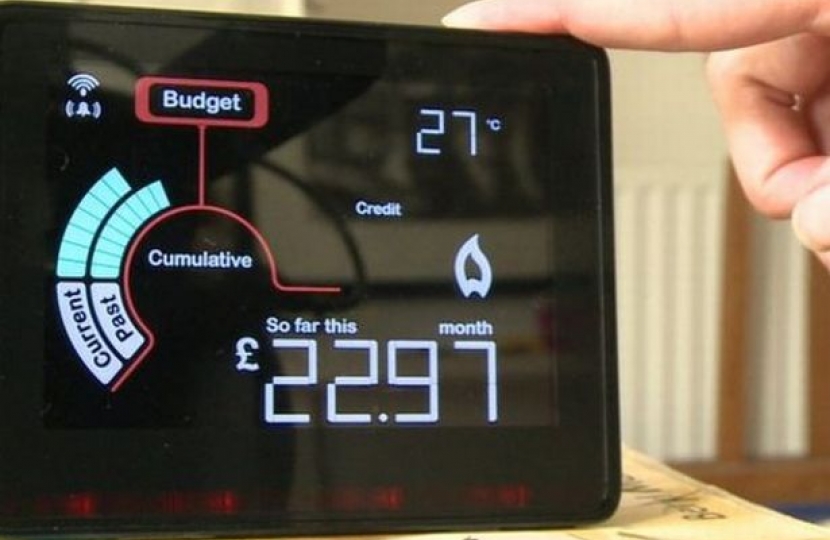
THIS week’s first frost is a sharp reminder that the cold of winter is on its way along with the annual battle to keep our energy costs under control.
While we don’t know at this stage whether one of the mildest autumns on record will be followed by a cold winter, it’s fair to stay that spending on electric, gas or oil will take a large chunk of everyone’s household budget. We are all familiar with the bill anxiety that follows a cold snap and the heating being on full blast.
In the Department of Business, Energy and Industrial Strategy where I work alongside Ministers, we have been delivering two important pieces of legislation to help households keep these costs in check.
The first of these is the Smart Meters Bill which will make sure every home and small business is offered a smart meter before the end of 2020.
Smart meters are the next generation of gas and electricity meters and more than seven million have already been installed in the UK. They offer a range of intelligent functions and provide consumers with more detailed information on their energy use, bringing an end to estimated billing and costly home visits by meter readers.
Smart meters give consumers near real time information on their actual energy consumption through an In Home Display, which will be offered to households as part of the installation. This information will allow us to adjust our energy usage to take advantage of cheaper prices at certain times of the day. Smart meters also make it much easier for consumers to switch supplier and get themselves on the best deals available in the market.
The Bill is currently working its way through Parliament with cross-party support. The smart meter rollout is expected to deliver £5.7 billion in net benefits, with £300 million taken off consumer energy bills by 2020 alone.
The Department is also taking steps to bring more immediate relief to those on the worst energy deals who struggle to switch to a better tariff.
Following the Prime Minister’s announcement about an energy price cap, the energy team unveiled the draft Energy Price Cap Bill last month. It will place a duty on the independent energy regulator, Ofgem, to impose a three-year price cap on the amount that energy suppliers can charge domestic customers who are on Standard Variable Tariffs or default tariffs.
At present two thirds of consumers are on these poor-value tariffs and last year it was estimated that collectively they were paying £1.4bn more than they could have been if on the best available deal.
The cap is designed to be temporary to help households until the full benefits of smart metering come through and the energy market is truly competitive. But importantly the Bill also makes provision for the cap to be extended until 2023 if necessary.
This legislation is yet to become law but there is other help available right now for households to pay their bills and to make their homes more energy efficient. See the Department of Business, Energy and Industrial Strategy website and click on the links “Get help with your energy bills” and “Save energy in your home or business”.
